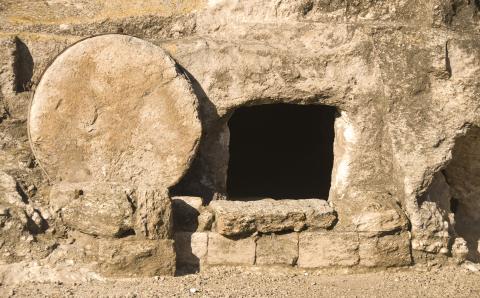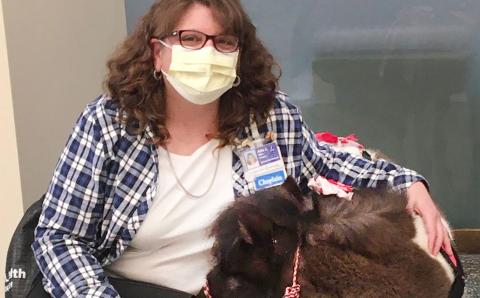The first time AJ Sherrill heard the word “Enneagram” in the home of Father Richard Rohr, he thought he might be in trouble. “Did he say pentagram?” he whispered worriedly to his friend. But instead of sinking him into a world of evil, the actual word Rohr used—Enneagram—was the beginning of deep spiritual transformation.
In this wise and insightful book, Sherrill offers readers an advanced course in the Enneagram, a personality theory with ancient roots that includes nine different personality types. He goes beyond just familiarizing the reader on the nine types (for the basics, read The Road Between Us by Ian Morgan Cron and Suzanne Stabile) to unlocking new ways of viewing identity, personality, discipleship, evangelism, and the Bible.
“It’s not a New Age tool,” he writes, referring to a common but baseless theory, “but a human tool that Christians can use to deepen faith and invite others into God’s story of healing the world’s brokenness.”
Since I began studying the Enneagram a couple of years ago, it’s become a candle, lighting the darker corners of my life and my relationships with others. Truly illuminating. As I understand myself and the way I am wired better, I am far more aware of the pitfalls that plague my particular type (I’m a 7) and can sidestep them more easily. As Chuck DeGroat says in his foreword, “AJ offers the Enneagram as a diagnostic tool to excavate a bit of our inner clutter. … The Enneagram is a kind of tool that aids in a kind of archeological dig of the soul.”
If this all sounds too self-focused, I speak from experience when I say that clearing out some of the junk in my basement, so to speak, has made room for not just personal growth but also compassion and understanding for others.
One of the most fascinating and helpful aspects of the book is how Sherrill connects each type to a biblical character, for better and for worse. My type, 7s, are fun, optimistic, and always up for trying the latest foodie trend or traveling to some hidden gem of a country not overly trod by tourists. That’s the good news about 7s. But the Enneagram has taught me to be alert to the darker sides of my personality, chiefly a propensity to hide from pain.
Solomon was probably a 7, and though he was wise, magnetic, and charming, he also married way too many women to keep track of, possibly in an attempt to distract himself from emotional pain. Aha! I thought, as I pondered my connection to this bygone king. Reading about 9s and Abraham gave me insight into my husband and son. Another son is a 3, like Saul and David (though David “learns to face his downfalls''). And the Syropheonician Woman, who pushed hard for justice, teaches me about my strong daughter. “If we see Abraham and Sarah, Moses and Mary, Deborah and Martha not solely as figures in biblical history,” Sherrill writes, “but also representing aspects of ourselves, we begin to understand their stories as intimately connected with our own stories and they can become mentors in teaching us about our inner lives.”
Every personality has a healthy, bright side and a darker, more problematic side. We are all fallen creatures. Sherrill helps us “excavate” the darker sides of ourselves, helping us reveal more and more of our true identity as children of God, and “to be made in God’s image is to be agapetos—beloved.”
The subtitle describes the benefits of the book perfectly: “How Knowing Ourselves Can Make Us More Like Jesus.” No matter what kind of personality we have, it’s possible to be transformed and more deeply rooted as God’s beloved child. (Brazos Press)
About the Author
Lorilee Craker, a native of Winnipeg, Man., lives in Grand Rapids, Mich. The author of 16 books, she is the Mixed Media editor of The Banner. Her latest book is called Eat Like a Heroine: Nourish and Flourish With Bookish Stars From Anne of Green Gables to Zora Neale Hurston.







